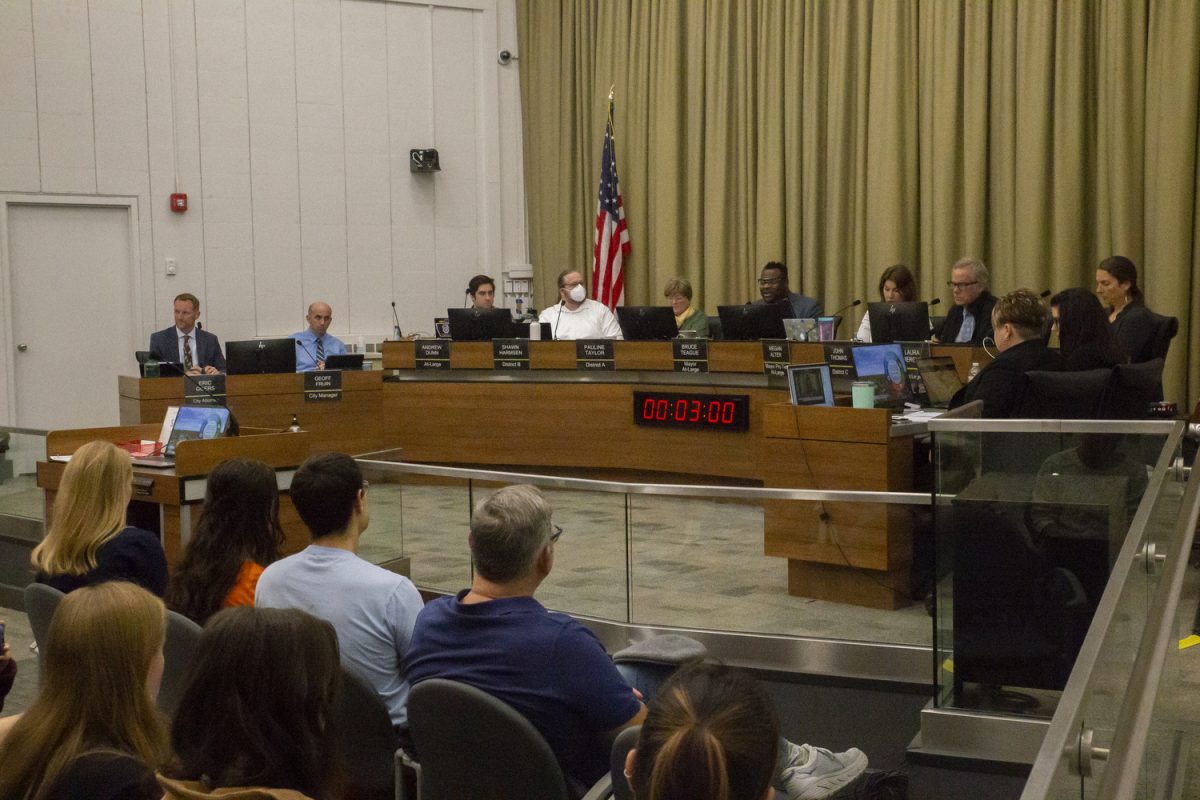The Domestic Violence Intervention Program, DVIP, is working to construct six rental housing units to allow victims of domestic violence to escape abusive situations and regain independence.
DVIP is in the process of applying to a state grant program to fund the project. The Iowa City City Council passed a resolution supporting this application and pledged $270,000 toward the project on Feb. 20.
The project would consist of building six townhomes with three bedrooms and two bathrooms, costing between $2 million and $2.5 million, DVIP Executive Director Kristie Fortmann–Doser.
According to a 2020 report from the National Coalition Against Domestic Violence, around 35 percent of women and 29 percent of men in Iowa experience some sort of domestic violence situation in their lifetimes.
Through DVIP, victims of domestic violence can access resources including rental or utility financial assistance and staff that can help victims make changes to their personal lives to become more independent, Fortmann–Doser said.
In Johnson County, DVIP currently has an emergency shelter that can give immediate housing to individuals who need to escape an abusive situation and have nowhere else to go, Fortmann-Doser said. Another DVIP emergency shelter is currently under construction in the county.
DVIP also serves Cedar, Des Moines, Henry, Iowa, Lee, Van Buren, and Washington counties in the state, according to its website. In Lee and Des Moines counties, DVIP owns properties similar to the one proposed for Johnson County, Fortmann-Doser said.
The lot where this housing is proposed to be constructed was purchased by the city in 2018 and has been designated to be used for affordable housing, the Feb. 20 city council agenda states. However, the original project that was planned for that lot did not end up happening, the agenda states.
Tracy Hightshoe, Iowa City’s neighborhood and development services director, said this opportunity with DVIP would ensure the lot is used for its designated purpose of affordable housing and would help serve the city’s vulnerable population.
“You go from a shelter or a dangerous situation into a permanent home that you can live in, and you’re getting supportive services,” Hightshoe said.
These kinds of housing opportunities are lacking in the Johnson County area and are greatly needed, Jessica Andino, the executive director of the Johnson County Affordable Housing Coalition, said. This organization is a partner of DVIP and advocates for funding for projects like this one, she said.
The construction of these properties would benefit those trying to escape a dangerous living situation as well as DVIP in the form of property value, Andino said. She also said it would provide a stable place for victims of domestic abuse.
“It’s also going to provide equity to the agency because as we know, their homes will assess higher in value as time goes on, and it can be used for leveraging of new projects or even more units in the future for these nonprofits,” Andino said.
To be eligible for the state grant funding, DVIP must secure a 25 percent match of the funding from an outside source, the agenda states. The city’s $270,000 contribution will count toward that 25 percent, but DVIP is also applying to other grants to reach the full 25 percent threshold, Fortmann-Doser said.
The state grant program is funded through COVID-19 relief funding the state received from the American Rescue Plan Act in 2021.
“It’s an important opportunity to bring home to Iowa victim-survivors in support of individuals who struggle with poverty, who struggle with resources, or whose resources have been taken away from them by an abusive partner,” Fortmann-Doser said.



